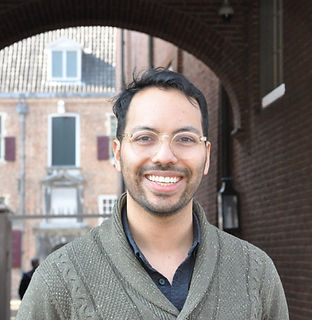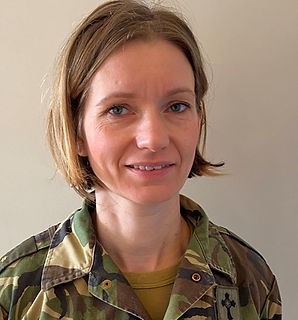Tilburg University
Chair Moral Education
This research explores a gap in ethics, philosophy and worldview teaching, asking: How should moral education be taught?
AN ACTION-ORIENTED APPROACH TO LEARNING ETHICS While most ethics education around the world focuses primarily on knowledge- and reflection-oriented approaches, studies have shown that there is a lack of attention paid to action-oriented approaches in ethics education. There is a "widespread agreement that schools should contribute to the moral development and character formation of their students" (Nucci et al. 2014, 1). This is reflected in compulsory learning outcomes and national curricula which include ethics education. Learning ethics can be categorized according to "orientation", from a theoretical orientation to a practical orientation: learning ethics as knowledge-oriented, learning ethics as reflection-oriented, learning ethics as moral judgement-oriented, and learning ethics as competence/action-oriented . With regards to knowledge, some ethics courses consist of an explanation of philosophical theories, such as utilitarianism, duty ethics, and virtue ethics. Regarding reflection, an application of these theories is applied to concrete cases. With regards to moral judgement, some ethics courses consist of the transmission of norms and values, accepted by a community. With regards to competence/action other ethics courses stimulate moral judgment or even encourage moral actions. It can be concluded that learning ethics ranges from cognitive learning, through reflection and through judgment, to moral action and moral education. While philosophers such as Martha Nussbaum, Pierre Hadot and Paul Ricoeur focus on the latter ways of learning ethics, currently precisely this orientation receives little attention in education. This research will explore this gap in ethics and philosophy teaching, and our research question is: How should moral education be taught?
Prof. Natascha Kienstra
Natascha Kienstra studied philosophy in Tilburg, Leuven and Utrecht. She received her PhD from the Faculty of Philosophy at Radboud University in Nijmegen in 2016 and was a teaching assistant at this university for more than twenty years. Since 2015 she has worked at Tilburg University (School of Catholic Theology, TST): first as Assistant Professor of Didactics and from 2020 also in Philosophy. Since November 1, 2022, she has held the special chair in Ethical Education. This chair was made possible by the Women of Bethany Fund. Since May 1, 2022, she has been chair of the Ethical Review Board and since February 1, 2023, she has been vice dean for research at TST. Her empirical research focuses on teaching and learning philosophy, ethics and worldview education. She is the lead researcher in an Erasmusplus project researching European ethics education (Community of Ethics Teachers, COMET) and has a joint methodology developed for philosophy teachers and debate coaches (A Debate And Philosophy Typology, ADAPT). She is vice-president of the Association Internationale des Professeurs de Philosophie (AIPPh). The AIPPh is a member of the Fédération Internationale des Sociétés de Philosophie (FISP). Furthermore, she is area editor of the Algemeen Nederlands Tijdschrift voor Wijsbegeerte and co-editor of a teaching method for philosophy education, critical thinking, citizenship and philosophy of life in secondary education (Durf te denken! at Boom publishing house).
Publications
Zorg dragen voor ethische vorming - Inaugural Address

Research
Our empirical research focuses on teaching and learning philosophy, ethics and worldview education. Our current researchers are Corline Melisse, F. Antonio Pinilla T., Sanneke Brouwer and Nadia Kroon.
Senior Research Fellowship
Research fellowship for midterm career theologians on sabbatical leave from their own universities, and covers board, lodging and travel costs.
Roman Zaviyskyy was a philosopher and theologian and president of the Ukrainian branch of the European Society of Catholic Theology. In June 2023, he spent two weeks in the Netherlands at the invitation of Tilburg School of Catholic Theology to get in touch with colleagues and to conduct research into Catholic thinking about peace and war (supported by the Ladies of Bethany Research Fellowship, established by the Tilburg University Fund). He reflects on the position and tasks of military chaplains in Ukraine, his wartime experiences, questions about peace and war, and Catholic responses to the war.
Education
Students who obtain a Ladies of Bethany scholarship enrol in the following Masters programme
Christianity and Society: philosophy, theology, politics, digital culture. Reflect critically on Christianity in the public space and the tensions that arise in the dialogue with modern society and world religions. The program links theological and religious sources of the past with current social, economic and political issues. Special attention is given to issues such as the relation between religion and state, and the contribution of capitalism to justice and happiness.
Impact
"The Ethics Bowl has shown me how many different ways there are to approach ethical issues, depending on your background and experience."
Theology Master's student Josje Schoonus
Our Ethics Bowls offer participants the opportunity to explore social and ethical issues in a safe environment and to practice critical thinking skills and collaboration.
What is an Ethics Bowl?
Both teams must set up arguments and dissect the other side’s arguments in order to create a broad scope of understanding. Throughout the round, both teams receive the opportunity to ask inquiring questions, critical questions, and conclude in a collaborative evaluation phase where the teams come together to review the round and examine: When does something moral become immoral?
Scholarship
The Tilburg University Fund Foundation and the catholic congregation of the Ladies of Bethany have together created the Ladies of Bethany Fund to draw attention to women and theology, and to religious education.
We offer scholarships to students (preferably women) from any religious background who recognize themselves in the core values of the Ladies of Bethany. The programme focusses primarily on young Catholic intellectuals who have a focus on the Catholic Social Thought and want to make a difference to the future.
In order to become eligible for this scholarship, you must fit one of the two profiles below:
-
Students must have an interest in religion and in the workings of religion and society, and a basic knowledge of Theology.
-
Female students from emerging and developing countries with an interest in Religion (*)
You must also be committed to the main topics of the Women of Bethany Fund: religious education, women and theology.
(*) In this case, developing and emerging countries include all non-European countries, except Australia, Bahrain, Canada, Hong Kong, Israel, Japan, New Zealand, Qatar, Saudi Arabia, Singapore, South Korea, United Arab Emirates, United Kingdom, and United States.
https://www.tilburguniversity.edu/education/masters-programs/tuition-fees-scholarships/women-bethany or link to Tilburg page






